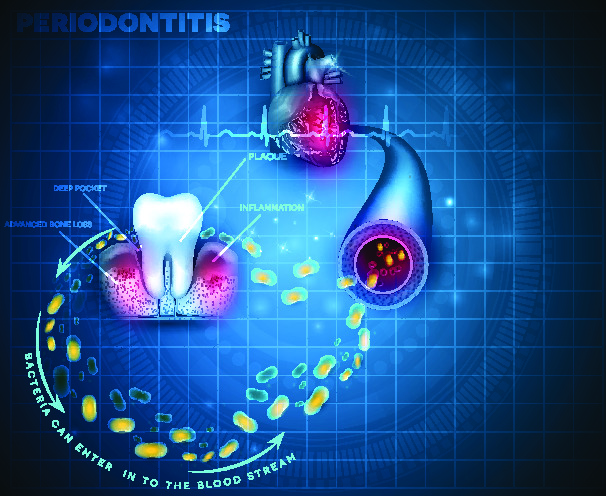It’s natural to feel uncomfortable or even a little scared of gum disease. This type of infection can have some embarrassing and painful symptoms.The best way to deal with gingivitis and periodontitis is to face the issue head-on and get the help you need as early as possible. Smile League has Joliet gum disease treatment in a relaxed, friendly, professional environment, so please reach out and schedule an appointment.For the rest of this article, we’re going to look at the research connecting gum disease to heart disease. We are also going to talk about some symptoms and preventive measures you can take.
Gum Disease and Heart Disease: Are They Related?
Did you ever think about how strange it is to have a different doctor for your mouth than you do for the rest of your body? All of these systems are connected in one way or another, and we are beginning to learn more about those connections.Recent research has suggested a stronger link between gum disease and heart disease. We’ve discovered the same type of bacteria in diseased hearts as we find in infected gums. There are also correlations between gum inflammation and some types of cardiovascular inflammation.The theory is that bacteria could enter the bloodstream through the gums. From there, it ends up forming reservoirs in other parts of the body.What does that mean for your heart health? The general consensus is that people at risk of heart disease, especially those with artificial valves, should make every effort possible to maintain good oral health.
Catching Gum Disease Early
To keep up with your oral health, you’ll want to pay close attention to any changes involving your teeth, gums, or mouth. Here are some symptoms to watch out for:
- Bad breath (not just after food or drink)
- Bleeding when you floss
- Changes in the appearance of your gums (different colors or puffy-looking gums)
- Longer-looking teeth (receding gums)
- Swollen or reddened gums
- Bleeding or pain, especially without flossing
- Loose teeth or teeth falling out
There’s no such thing as a minor symptom of gum disease, but some of these are obviously more serious than others. Please contact us if you have any of them — and preferably reach out before you start feeling pain or serious discomfort.
Preventing and Treating Gum Disease
Gum disease is typically a progressive problem that we control early through focused changes in habits. Sometimes, we recommend professional intervention. There are also some things that could prevent it (or prevent it from getting worse):
- Brushing and flossing regularly
- Quitting smoking
- Getting professional cleanings
- Having regular preventive dentist appointments
- Getting deep cleanings
- Taking certain types of antibiotics
Treatment really depends on your exact condition — we’ll have to take a look to see what we can do. Also, if you already come in a couple of times a year, you can be confident that your dentist is already keeping an eye out for any signs of gum disease.Hopefully, that provides a good summary of what we currently know about the link between gum disease and heart disease. For more questions or to make an appointment, feel free to reach out to our experiencedfamily dentists in Joliet at any time by calling 815-782-6243.


Recent Comments